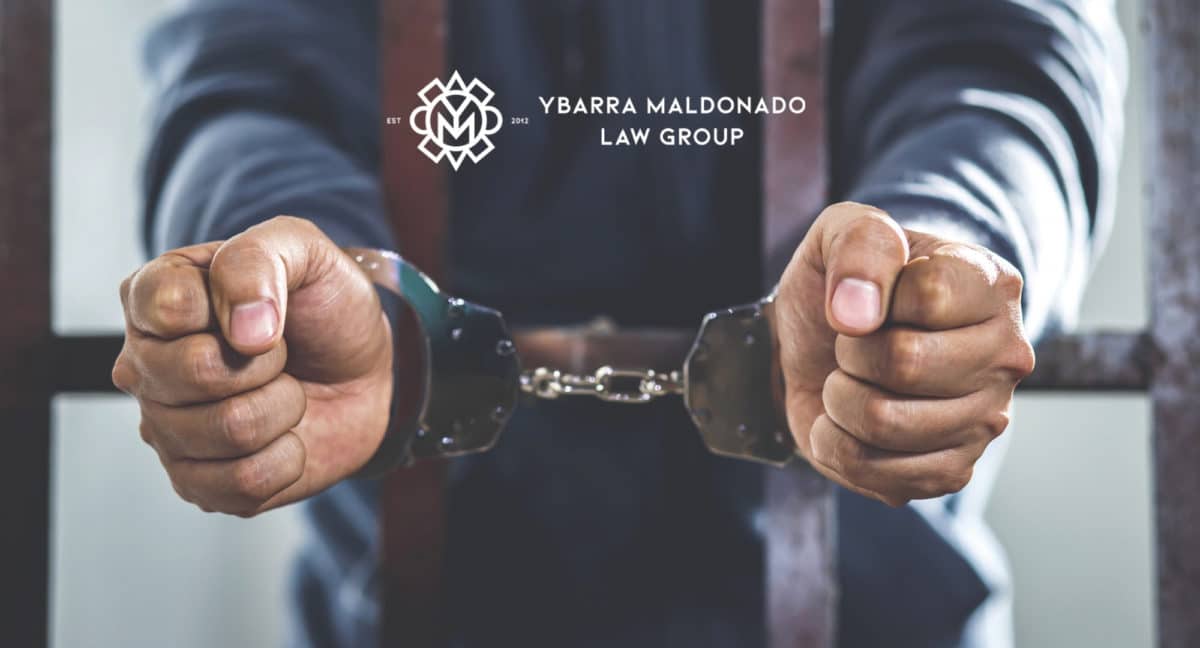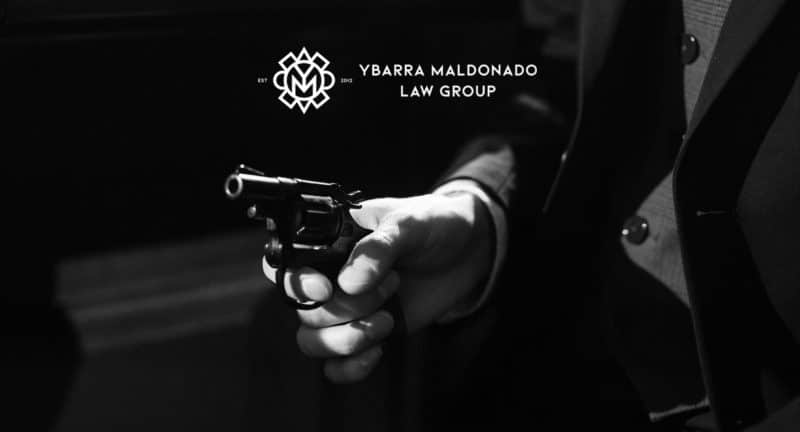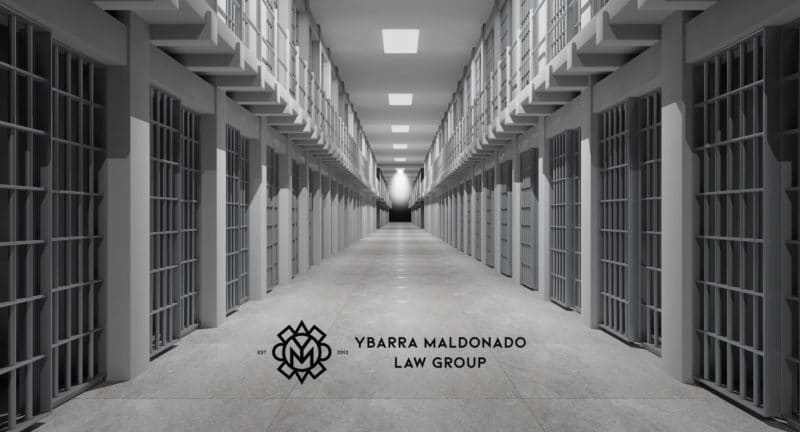ASSAULT LAWYER PHOENIX, AZ
PRACTICE AREAS
DON’T HESITATE TO REACH OUT TO US!
Our Law Firm is committed to becoming the best Law Firm for Latino, migrant, and Spanish speaking communities in Arizona.

Being charged with a crime in Arizona can be a scary experience. This is especially true if you’ve been accused of committing assault and battery or any other violent crime. Arizona’s criminal justice system does not hesitate to press charges against individuals. Unfortunately, even being arrested and charged can have a profound impact on your life. If you’re facing an assault charge in Arizona, you need an assault lawyer Phoenix on your side. Call the Ybarra Maldonado Law Group today to schedule a consultation at 602-910-4040.
Phoenix Assault Lawyer Defending the Accused
At Ybarra Maldonado Law Group, we understand that facing serious criminal charges can be scary. A Phoenix criminal defense attorney with our law firm can help you defend your rights and freedoms in a court of law.
We handle a wide variety of criminal defense cases and have a stellar track record. The following are several case types that we have experience handling as criminal defense lawyers.
- Class 6 Felony Arizona
- Domestic Violence Charges in AZ
- Domestic Battery Charges
- Arizona Expungement
- Federal Criminal Defense
- Violent Crimes Defense
- Homicide Defense
What Is Assault?
Arizona Revised Statutes 13-1203 defines assault as the following.
A person commits assault by: Intentionally, knowingly or recklessly causing any physical injury to another person; or Intentionally placing another person in reasonable apprehension of imminent physical injury; or Knowingly touching another person with the intent to injure, insult or provoke such person.
ARS 13-1203
In order to qualify as a felony assault (or aggravated assault), the following criteria must be met.
- Serious physical injury, fracture, or disfigurement occurs as a result of the assault.
- The alleged perpetrator uses a deadly weapon.
- The alleged victim is either physically restrained or bound during the assault.
- Alleged victims are police officers, prison guards, health care professionals, prosecutors, firefighters, park rangers, teachers, or even public defenders.
- The alleged assault occurred in the personal residence of the alleged assault victim.
What Qualifies as Assault in Arizona?
Many different actions can qualify as assault in the state of Arizona. Below, we provide examples of these actions that constitute assault.
- Spitting on or trying to spit on someone
- Pretending to strike, kick, or hit the victim
- Pointing a firearm at the victim, even if it is unloaded
- Showing the victim a weapon in a way that suggests they will be harmed by it
What Is Battery?
It’s important to recognize that aggravated assault and battery are considered synonymous in the state of Arizona.
A regular assault charge becomes an aggravated assault charge if the following conditions are met.
- Serious injury or disfigurement occurs to the victim.
- The perpetrator uses a deadly weapon or dangerous instrument to put someone in reasonable fear of imminent physical harm.
- The perpetrator commits the aggravated assault on one of the following people.
- Police officer
- Elderly person
- Prosecutor
- Peace officer
- A household member
- Another public servant
Sometimes, battery charges go hand in hand with resisting arrest charges. Also remember that assault and battery are not the same. Read our related blog on the differences between assault vs battery in Arizona.
Types of Assault Charges in Arizona
Depending on the type of assault someone commits, they may face the following criminal charges for their actions.
Simple Assault or Misdemeanor Assault
A simple assault occurs when the perpetrator fulfills the requirements listed in ARS 13-1203, which we discussed above. It’s important to remember that, to be charged with a misdemeanor assault, it is not necessary to cause physical harm to someone. Below, we list examples of simple assault in Arizona.
- Pushing someone
- Threatening someone with your fists or hands
- Hitting someone
- Slapping someone
- Pinching someone
- Biting someone
- Using fighting words against someone
- Swearing, taunting or using verbal threats against someone
Felony Assault or Aggravated Assault
Aggravated assault is essentially simple assault combined with one or more “aggravating” characteristics. These characteristics are as follows.
- Serious physical injury or bodily harm has occurred to the victim
- Perpetrator used physical force, which resulted in bodily injury to the victim
- The victim was physically restrained or unable to resist
- Use of a deadly weapon or dangerous instrument
- Perpetrator entered into the private home of another person
- The assault occurred to a minor under the age of 15
- The assault was against a police or peace officer, or other public servant
- It violated a domestic violence order of protection
- Impeding someone’s ability to breathe
Domestic Violence
Even domestic violence is a form of assault in Arizona.
An assault is considered domestic violence if the following criteria are met.
- Incident involved two or more people who live together
- The incident involved two or more related people
- The incident involved two or more people who were romantically involved
What Does Aggravated Mean Legally?
Crimes and intentional torts are considered “aggravated” if certain aggravating factors come into play. These aggravating factors make the situation more serious than it otherwise would have been. Thus, aggravated assault carries harsher penalties than misdemeanor assault. This is true in terms of the prison sentence, jail time, maximum penalty, and fines following a felony conviction.
What Are the Penalties for Assault Charges in Arizona?
The severe penalties assigned to felony or misdemeanor assault cases depend on the class of the felony or misdemeanor assigned to them. Below, we outline the penalties for an aggravated or simple assault depending on the class.
Misdemeanor Assault in Arizona
- Class 3: Up to 30 days in jail with one year probation, restitution, community service, anger management classes, and $500 in fines.
- Class 2: Up to 4 months in jail with two years probation, the same additional requirements as Class 3, and $750 in fines.
- Class 1: Up to 6 months in jail with three years probation, the same additional requirements as Classes 2 and 3, and $2,500 in fines.
Felony Assault in Arizona
- Class 6: From 18 months to 3 years in prison, with a presumptive term of 27 months.
- Class 5: From 2 to 4 years in prison, with a presumptive term of 3 years.
- Class 4: From 4 to 8 years in prison, with a presumptive term of 6 years.
- Class 3: Up to 15 years in prison, with a presumptive term of 7.5 years.
- Class 2: From 7 to 21 years in prison, with a presumptive term of 10.5 years.
How Does a Prosecutor Prove an Assault Case?
In order to craft a successful defense with your assault attorney, it’s important to understand how prosecutors prove these cases. Once you understand how they prove it, you can begin to pick apart their arguments and strengthen your own defense. Below, we list the pieces of evidence that a prosecutor will likely use in their case.
- Bodily harm or bodily injury: Prosecutors can prove that physical harm occurred by showing unedited pictures of the injuries. They can also use medical records to their advantage. It becomes harder for a prosecutor to gather evidence if no physical attack occurs.
- Eyewitnesses and testimonies: As with other related offenses, many assault cases rely heavily on eyewitness testimony. These testimonies can come from the victim, the perpetrator, the police, or even third-party witnesses. Fortunately for defendants, eyewitness testimony is not always reliable. Many studies of eyewitness reliability have found that anxiety, biases, the passage of time, and memory recollection can all negatively affect the reliability of eyewitness accounts.
- Determining and establishing intent: The burden of proof lies with prosecutors to prove that a defendant intended to cause immediate harm to someone. Most prosecutors will take statements from the accused and use those statements against them to show intent.
What Are Possible Defenses to Assault Charges?
Working with a Phoenix assault lawyer will allow you to protect both your legal rights and your civil rights. If you are convicted of the alleged crimes, it’s important to understand that this conviction could greatly affect your personal and financial future. An assault attorney can help you craft the best possible defense for your situation. Some common defenses to assault include the following.
- Self-defense: If the accused only engaged in the actions in question as a form of self-defense, this is a valid defense strategy.
- Crime prevention: Doing something in order to prevent another crime is also a common defense strategy.
- Defense of others: Defending other people is also a valid defense for assault charges.
- Defense against property damage: If your property or other pieces of property are being threatened, you can use this as a valid defense against assault charges.
- Mistaken identity: As we stated above, witness testimony is often unreliable. If you and your attorney can prove that a witness has mistaken you for someone else, you can use this defense.
- Alibi: Obviously, if you could not have physically committed the crime, you can use your alibi as a valid defense.
- Reasonable doubt: The prosecutor must prove beyond a reasonable doubt that you committed the acts in question. You and your attorney must work together to cast reasonable doubt on the prosecutor’s argument.
Can Assault Charges Be Dropped in Arizona?
It is an unfortunate reality that some people file assault, battery, and other charges against people even when nothing happened. Many of these people file the charges out of anger, hurt, or another intense emotion.
Once they have time to calm down and properly evaluate the situation, they may decide that they want the charges dropped. But can assault charges be dropped in Arizona? How difficult is it to accomplish this? First, we will establish the grounds for dismissal of assault cases.
If there is insufficient or inadmissible evidence, this could be grounds for dismissal. As we stated before, the prosecutor must prove guilt beyond a reasonable doubt. If there is no evidence pointing to guilt, the prosecution may drop the charges.
Even if the alleged victim wants to drop the charges, this doesn’t happen instantly. Prosecutors can still move forward with a case if the alleged victim does not testify. Victims can push a prosecutor to drop the case in the following ways.
- Recanting the testimony
- Changing their story
- Failing to recall the facts of the incident
- Failing to be useful during a deposition
- Downplaying the incident
Call Our Phoenix Assault Lawyers for Representation
If you face a lengthy prison sentence, it’s important to find criminal defense lawyers that have your best interests at heart from the very beginning. You should seek representation from an experienced assault attorney in Phoenix. At Ybarra Maldonado Law Group, we have a deep understanding and appreciation for Arizona law.
While the legal system has its flaws, we believe in using it to the advantage of the wrongfully accused. To establish an attorney-client relationship with us, contact our law office today. Call 602-910-4040 to schedule your case evaluation. Any sensitive or confidential information that you reveal to us will remain confidential.




